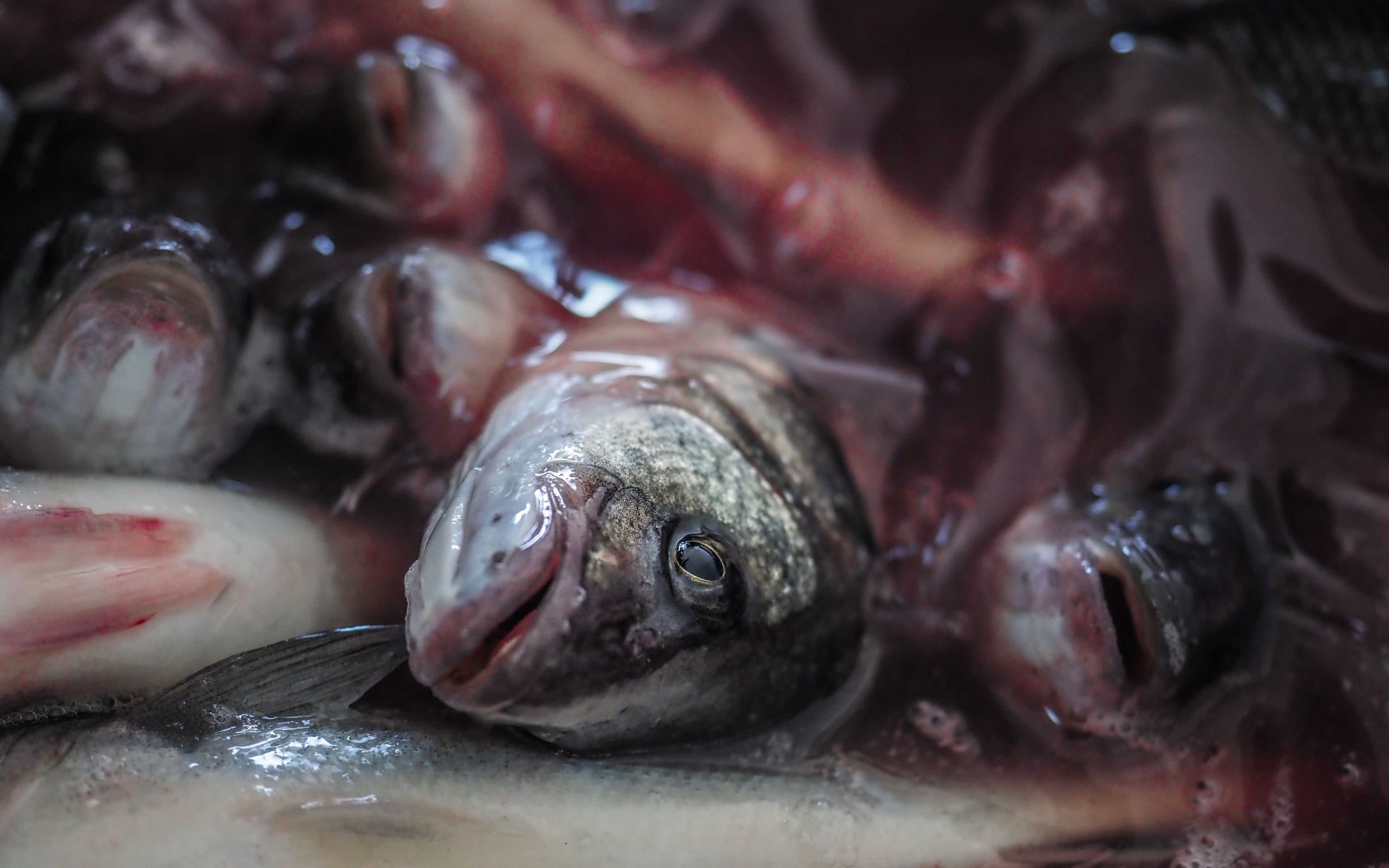




Shockingly, farmed fish slaughterhouses are not considered slaughterhouses by UK law, and therefore don’t need to contain CCTV cameras.

According to recent Government Minister Jo Churchill, fish should not be included in laws which mandate the use of CCTV in slaughterhouses because the footage “would not be viewed”.
This is because, as fish slaughterhouses do not have official vets and are subject to no routine animal welfare inspections, any CCTV footage taken would be ignored.
Are fishes killed in slaughterhouses?
‘Farmed fish processing premises’ are not considered slaughterhouses by law and are therefore not required to be fitted with CCTV.
The overwhelming scientific consensus is that fishes feel pain - yet they are treated with less care or oversight than other species.
Places where farmed fishes are slaughtered and dismembered are obviously slaughterhouses, yet the law insists otherwise.
Slaughter is a big area where the Government treats fishes differently to other farmed animals, with no justification.
Our campaign to stop fishes being forgotten
In 2021 The Humane League UK launched The Forgotten Fish Campaign to call on the Government to update the law and mandate pre-slaughter stunning for farmed fishes.
Pre-slaughter stunning is the standard for most of British aquaculture but The Humane League UK argues that legal change would allow for transparent public inspections of slaughterhouses, where breaches of standards could be punished by law.
The Government’s Animal Welfare Committee published its Opinion in 2023, stating (as it did in its 1996 and 2014 Opinions)that the law should be updated to mandate stunning at slaughter for fishes.
When fishes are forgotten their welfare problems don’t go away, they simply go ignored.
Take action for fishes
With the Government ignoring the welfare of millions of sensitive fishes it is up to us to make them pay attention.
Sign our petition to get pre-slaughter stunning for farmed fishes mandated by law.
Note: Why 'fishes' and not 'fish'? In his book ‘What a Fish Knows’, ethologist Jonathan Balcombe points out that referring to their plural as ‘fish’ lumps them together ‘like rows of insentient corn.’ But the truth is that fishes are individuals with personalities, relationships and the capacity to feel. The Humane League UK wants to set an example of recognition and inclusion in the language that we use as well as fighting to improve the rights of fishes farmed for food. We advocate for using the plural ‘fishes’ instead of ‘fish.’

 Matthew Chalmers
Matthew Chalmers






